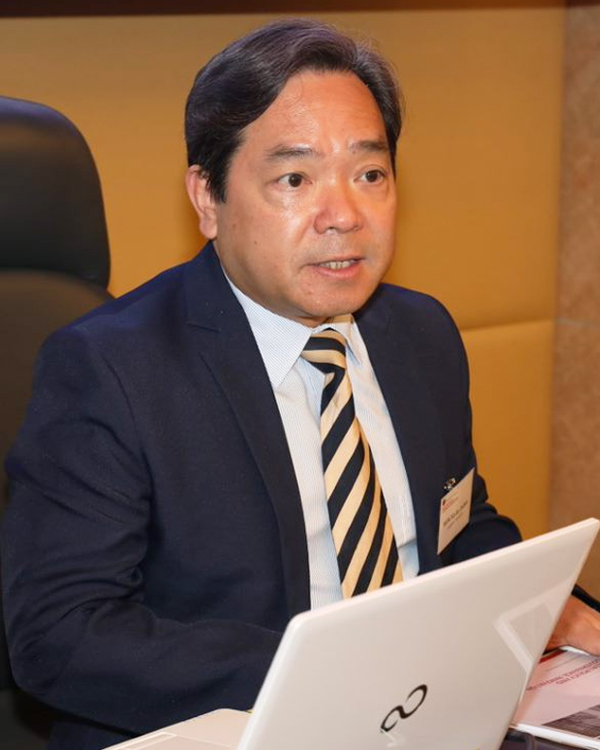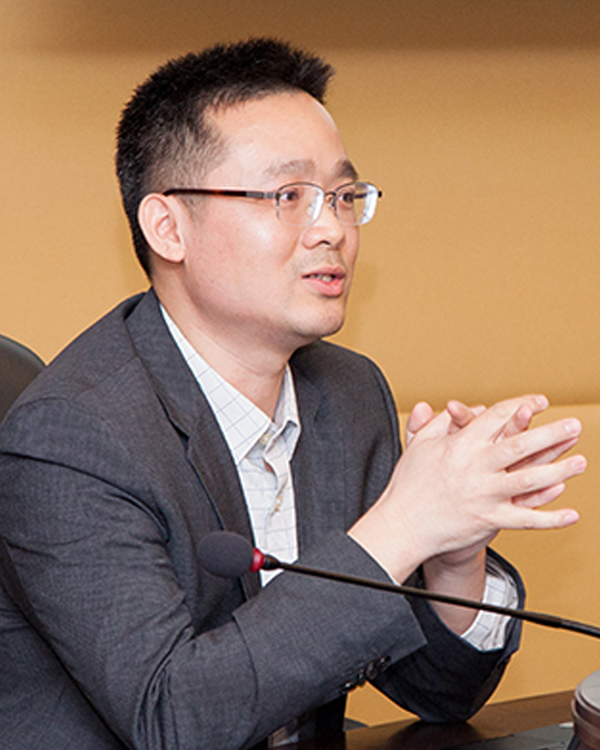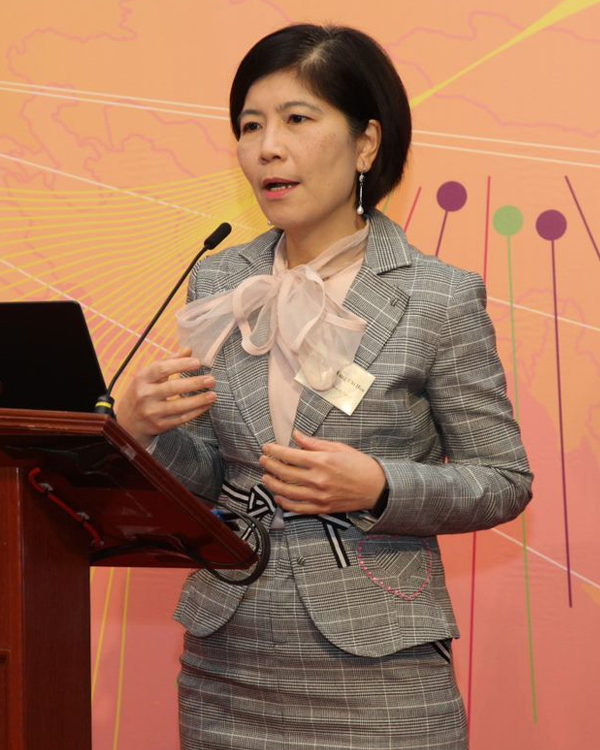
Professor Ka Ho Mok
The 2021 Symposium on Internationalisation and Quality Management in Higher Education successfully combined online and onsite participation in a hybrid mode. The event, which was organised by Lingnan University’s School of Graduate Studies and Institute of Policy Studies, the College of Education at National Chengchi University, and the Asia Pacific Higher Education Research Partnership, was supported by the Alliance of Asian Liberal Arts Universities.
Professor Ka Ho Mok, Vice-President, and Dean of School of Graduate Studies, at Lingnan University, first welcomed all those taking part. While Lingnan’s efforts in the fields of quality management and internationalisation have been recognised on the global stage - the university was ranked second, worldwide, for “Quality Education” in the THE University Impact Rankings 2020, and first in internationalisation by QS Asia University Rankings 2021 - Prof Mok said this was no time for complacency. The switch from a purely online to a hybrid mode of learning had been challenging but necessary in order to maintain quality standards, he noted. As for the future, he said he was keen to see a continued expansion in the scope of Lingnan’s already highly successful international research collaborations and student exchange programmes.
In her opening remarks, Professor Angela Yung Chi Hou, Associate Dean, National Chengchi University, echoed Prof Mok’s appreciation of the way in which universities, faculty members and students had tackled the difficulties they’d been presented with during the last year. Prof Hou said she was very much looking forward to learning, during the course of the Symposium, about how their colleagues from different countries had coped with the pandemic and about the research projects they had been working on.
Are COVID fears enough to keep Mainland students at home?

Professor Wenqin Shen
Over the past decade, China has become the world’s greatest exporter of university students. In his keynote speech to the Symposium, Professor Wenqin Shen of Peking University’s Graduate School of Education, examined how this mobility has been affected by the COVID-19 pandemic. His presentation, titled Fighting against Risks and Uncertainties: Chinese Students’ Decision Making of Studying abroad for Graduate Programmes under COVID-19, was based on the paper he co-authored with several Masters students. Prof Shen’s team's research was based on interviews conducted with 73 Chinese students from elite universities, between January 2020 and March 2021, and on the completion of over 1,200 questionnaires, between December 2020 and February 2021.
The pandemic has dramatically increased health concerns, restricted travel and access to campuses, and led to a sharp uptick in racial discrimination against Asians, Prof Shen noted. However, the bulk of their interviewees already had established career or study plans, and perceived a degree from the top overseas institutions as having a potentially very positive impact on their future careers. Some had also invested a great deal of time and money in this academic pathway.
"That is why most of our interviewees still insist on studying abroad," he reported.
Though this was their favoured option, some interviewees had to cancel or delay their travel plans. While high-achieving college students from less-wealthy backgrounds, with less ability to mitigate risks, and whose family did not have as much experience of international travel, were also more likely to abandon their plans, he noted. And the longer the duration of the target overseas programme, the less willing students were to accept the new challenges.
Prof Shen concluded by pointing out that the deteriorating relationship between China and the United States, and the struggles Chinese students were now having in obtaining US visas, was another factor playing into elite college students’ decision-making process. Taken together with differences in the effectiveness of national responses to the COVID-19 pandemic, this has led to some students giving up on studying in the United States, and applying to universities in other countries, such as the United Kingdom, Australia, Germany and Singapore, as well as to those in Hong Kong.
Developing a common quality assurance regulatory framework for transnational education

Professor Angela Yung Chi Hou
Transnational Higher Education (TNHE) comes in a variety of forms. These include franchising, twinning, joint or double degrees, branch campuses, off-shore institutions, virtual university, distance education, and joint ventures or collaborative programmes between “importing” and “exporting” countries. This could go some way to explaining the lack of a common quality assurance (QA) regulatory framework for TNHE.
The absence of agreed standards, and the negative impact this can have, was the focus of the keynote presentation from Professor Hou of Taiwan’s National Chengchi University. Among Prof Hou’s key concerns were the difficulties in both achieving a consensus on the definition of quality transnational education, given differing national regulations, and in ensuring that programmes simultaneously meet local and international quality standards.
For students looking to, say, build a career on their TNHE studies, a key question was whether their degree would be recognised in their home country. “So how can the quality assurance system ensure the quality of the qualifications,” she wondered. There was, therefore, a need to protect students, “from the risks of misinformation, low-quality provision and qualifications of limited validity”.
Over the years a number of international bodies have set out guidelines for TNHE, and in the Asia-Pacific region alone there is an estimated 81 QA agencies, 44 of which are national or public, and 37 private. These vary widely, in terms of factors such as size and reliability, but all have close relationships to their national governments. However, there are still no specific QA policies for TNHE in Asia and the challenges of developing agreed educational goals, curriculum designs, assessment modes, and the like, remain.
The COVlD-19 pandemic has only amplified such issues, with the cancellation or postponement of face-to-face QA activities for TNHE, and the absence of any new QA mode for virtual TNHE.
Prof Hou ended her presentation by calling for the strengthening of the role of QA role in TNHE in Asia through the development of greater international linkage and collaboration between QA agencies, the engagement of HE stakeholders, including governments, and the devising of better QA systems for the delivery of online education.


